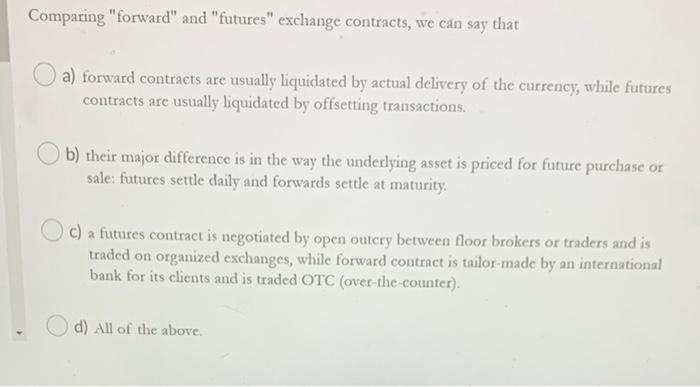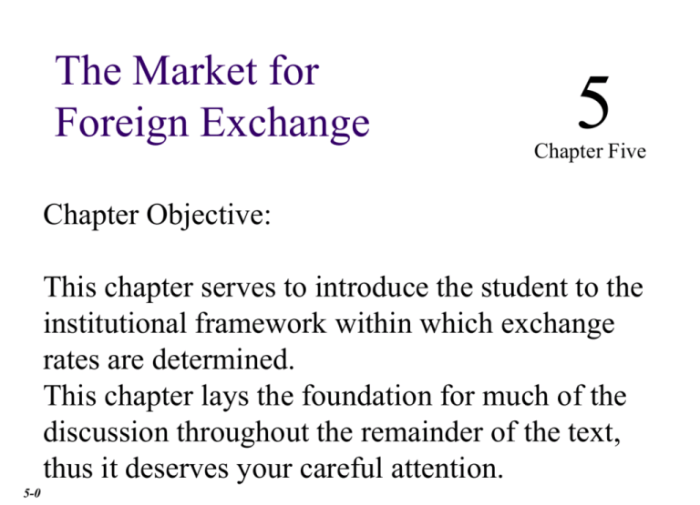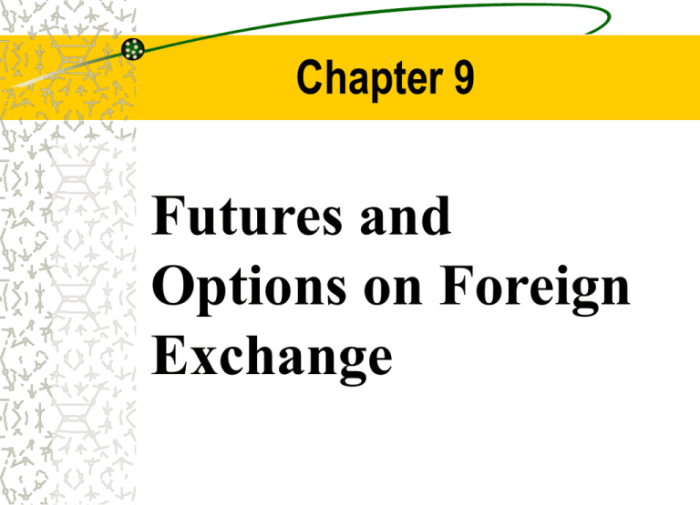Comparing forward and futures exchange contracts we can say that – Comparing forward and futures exchange contracts reveals a nuanced interplay of similarities and distinctions, each instrument tailored to specific risk management and trading objectives. Understanding these differences empowers market participants to navigate the complexities of financial markets effectively.
Forward contracts, bespoke agreements between two parties, offer flexibility and customization, while futures contracts, standardized exchange-traded instruments, provide liquidity and transparency. This comprehensive analysis delves into the key features, advantages, disadvantages, and applications of both forward and futures contracts, guiding readers towards informed decision-making.
1. Comparison of Forward and Futures Exchange Contracts: Comparing Forward And Futures Exchange Contracts We Can Say That

Forward contracts and futures contracts are two types of derivative contracts that are used to manage risk and speculate on the future price of an asset. Both contracts involve an agreement between two parties to buy or sell an asset at a specified price on a future date.
However, there are some key differences between forward and futures contracts.
Define Forward Contracts and Futures Contracts
Forward contractsare private agreements between two parties to buy or sell an asset at a specified price on a future date. Forward contracts are not standardized and are not traded on an exchange. Instead, they are customized to meet the specific needs of the two parties involved.
Futures contractsare standardized contracts that are traded on an exchange. Futures contracts are for a specific quantity of an asset and are traded for a specific delivery month. Futures contracts are marked to market daily, which means that the price of the contract fluctuates with the price of the underlying asset.
Explain the Key Differences Between Forward and Futures Contracts
The key differences between forward and futures contracts are as follows:
- Standardization:Futures contracts are standardized, while forward contracts are not.
- Exchange trading:Futures contracts are traded on an exchange, while forward contracts are not.
- Marking to market:Futures contracts are marked to market daily, while forward contracts are not.
Provide a Table Comparing the Features of Forward and Futures Contracts, Comparing forward and futures exchange contracts we can say that
The following table compares the features of forward and futures contracts:
| Feature | Forward Contracts | Futures Contracts |
|---|---|---|
| Standardization | No | Yes |
| Exchange trading | No | Yes |
| Marking to market | No | Yes |
FAQ Compilation
What is the primary difference between forward and futures contracts?
Forward contracts are privately negotiated agreements between two parties, while futures contracts are standardized contracts traded on an exchange.
What are the advantages of using forward contracts?
Forward contracts offer flexibility, customization, and the ability to tailor the contract to specific needs.
What are the disadvantages of using futures contracts?
Futures contracts may have limited liquidity in certain markets and can expose traders to margin calls if the market moves against their position.


